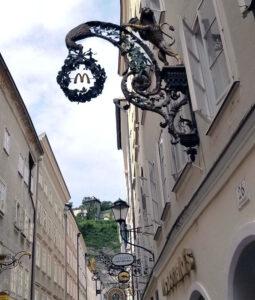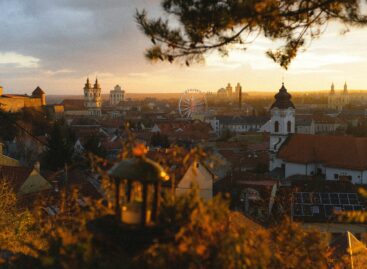Tourist invasion in Europe: the summer of Mediterranean overtourism
School is out, vacation is coming: Europe’s most popular holiday destinations are already suffering from the pressure of tourism. Residents of Rome, Barcelona, Venice and Tenerife are increasingly taking action against overtourism. Memorable moments from last summer included the “TOURISTS GO HOME” signs and the water pistol demonstrations in Barcelona. This year, the protest is more organized: on June 15, residents of cities hit by tourism in Spain, Portugal, Italy and France took to the streets simultaneously – the artictle by Telex points out.
 The problem is noticeable on two levels. On the one hand, overtourism puts a physical strain on the locations: crowds, pollution, and infrastructure. In Barcelona, for example, the bus route to Gaudí’s Park Güell had to be removed from Google Maps because the locals could no longer fit on the buses. On the other hand, the concept of touristization is also important: city services are increasingly tailored to the needs of visitors, crowding out the interests of local communities.
The problem is noticeable on two levels. On the one hand, overtourism puts a physical strain on the locations: crowds, pollution, and infrastructure. In Barcelona, for example, the bus route to Gaudí’s Park Güell had to be removed from Google Maps because the locals could no longer fit on the buses. On the other hand, the concept of touristization is also important: city services are increasingly tailored to the needs of visitors, crowding out the interests of local communities.
The spread of Airbnb, the emergence of expensive tourist-oriented accommodations, and the price-inflating effect of absorbing downtown apartments are a familiar phenomenon not only for Mediterranean cities, but also for Budapest. Last year, the Canary Islands received 15 million tourists compared to a population of 2.2 million, while Santorini has 3 million visitors for 20,000 locals.
Revenues from tourism are not evenly distributed: the benefits are concentrated with service providers, while the negative consequences (crowds, price increases, noise, environmental pollution) weigh on a wider segment of the population. The 2024 summer, with 1.5 billion tourists worldwide, broke new records, and according to the European Travel Commission, 2025 will be even busier.
Cities have responded to the phenomenon in various ways: digital crowd monitoring systems, visitor quotas (Acropolis), fences (Hallstatt), selfie penalties (Portofino), restrictions on boat tourism (Venice, Mykonos), or the introduction of a tourism tax (Barcelona, Ibiza). In Barcelona, 10,000 apartments were removed from tourism.
Economically, overtourism is similar to the phenomenon known as Dutch disease: if an economy is built on a single, apparent resource, it can hinder the development of more productive sectors in the long term. According to Italian research, the number of people entering higher education has decreased in regions that have become over-touristed: many end up in the hospitality industry at a young age.
The long-term solution is to spread tourists out over time and space: tourists should not arrive at the most popular locations all at once, but should be distributed out of season and at alternative destinations. Conscious travel is not only in the interest of locals, but also of tourists: fewer lines, fewer crowds, a more experiential trip.
Related news
Hotel Association: Hotel of the Year 2025 awards presented
🎧 Hallgasd a cikket: Lejátszás Szünet Folytatás Leállítás Nyelv: Auto…
Read more >Szallas.hu: Budapest, Hajdúszoboszló and Eger are the favorites of domestic travelers in spring
🎧 Hallgasd a cikket: Lejátszás Szünet Folytatás Leállítás Nyelv: Auto…
Read more >Related news
(HU) KÖSZ X. Közétkeztetési Szakácsverseny 2025-2026 – Országos döntő
🎧 Hallgasd a cikket: Lejátszás Szünet Folytatás Leállítás Nyelv: Auto…
Read more >(HU) Olyan nincs, hogy valami nem tészta – A nap videója
🎧 Hallgasd a cikket: Lejátszás Szünet Folytatás Leállítás Nyelv: Auto…
Read more >








